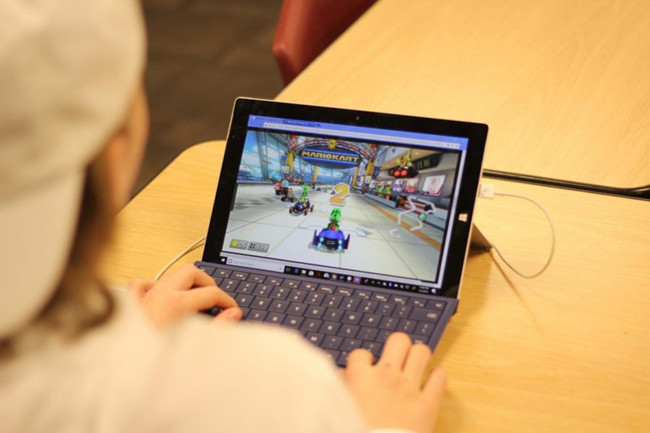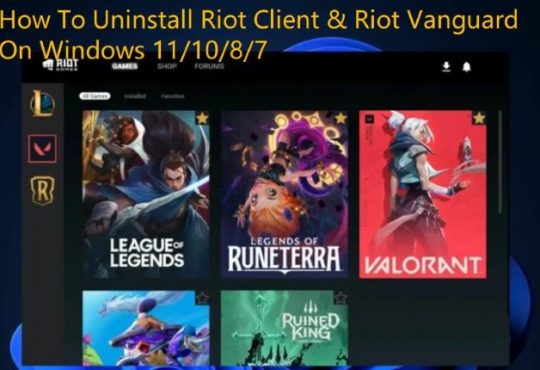For centuries, games have been viewed as an excellent means to socializing and learning new skills, let alone that they are fun and entertaining. Children learn mainly through playing, and gamification is one of the most popular and effective trends in education today.
And why wouldn’t it be? Games help create an easy setting where children can learn naturally and eagerly, without the fear of being judged or condemned. Which makes it even more surprising that video games cause so many concerns among parents and teachers.

But as far as this industry goes, they are regularly accused of corrupting immature minds, fostering aggression and violent behaviors, and promoting physical passivity.
While this may be true for some projects, even a greater number of video games has huge educational potential, for both hard and soft skills. Some schools and colleges have already adopted video games as part of their curriculum, and even more are on the way. This is due to the numerous benefits video games offer to learners. Here they are:
Educational Video Games
Browned-off parents may not know it but there are actually educational video games. Students can learn astronomy, biology, human anatomy, physics, and many other subjects through playing games. One of the most vivid examples is how a third-grade teacher helped his students to master an almost three-semester program in just 4 months.
By simply playing video games, kids were improving their Math and English skills focusing on the fun process rather than on the oppressive need to memorize things.
And this is not the only case. Pilots, engineers, designers, and doctors are widely using different simulators to polish their skills in a safe environment. Through simulation video games, they can try and fail as many times as they need before they develop that necessary level of expertise.
“From freelancing for medical school essay writing service to actually finishing medical school, it’s funny how I made all this way to becoming a surgeon. Because it all started with playing some silly hospital simulation,” says Nikki Cavallo, a brilliant surgeon from Texas.
And there’s a simulator for almost everything! You can open your own restaurant or hotel, dive into the world of fashion, assemble a car and learn about different types of engines, or travel the world and explore its wonders from the comfort of your home. Some can be assisted by AR and VR technologies for a completely new experience of full immersion, while others are good as they are.
Take Civilization, for one. Simple in its core, it tells players about historic figures and events, geographic notions, ships and troops, teaches them to build strategy and choose tactics, trains their diplomacy skills, and much more. No doubt, it’s super addictive but so as learning should be.
Video Games Increase Self-Esteem
Success is highly important for our confidence and self-esteem. You can’t ensure regular success in real life, but in virtual, you can. In their essence, video games are a set of goals players have to achieve by taking certain actions, so if you are committed enough a positive outcome is always guaranteed.
This builds confidence in kids and teens through teaching them patience, perseverance, and that your effort will always be rewarded. No matter what game they are playing, students learn to set goals and reach them no matter what, which means they always have their moments of glory.
This is especially important for students who tend to give up quickly. Through video games, they can develop a mindset that success is just a matter of one more step, and even if they’re not there yet – then of another one.
Finally, when the real world is falling apart, video games can be that safe harbor to escape to, collect their strengths, and transfer small pixel victories onto big real-life ones.
They Foster Teamwork and Communication
Most video games are based on cooperation and interaction with other gamers. Whether you want to find your way through a challenging location or take out a fat boss, you’ll need a bunch of other players to help you out. And to make this fierce “machine” function, you must learn to communicate and work in a team.
There are many stories when people, sometimes even from different generations, could find friends for life; and active gameplay is something that can get the least communicative individuals talking.
In class, this would mean educating students in the way they understand. Through video games, teachers can help outsiders build good relationships with the rest of the group and involve shy individuals in conversations. This would foster an atmosphere of respect, cooperation, and friendship in the class.
They Awake Curiosity with Technologies
Statistically, students who play video games are more technically literate than their no-gamer pals. This largely happens because video game players get exposed to hardware and software early on.
Whether you’re playing on PC, PlayStation, or a tablet there’s plenty of things to get covered before you can actually start a game. As a minimum, you should know how to check free storage space.
Furthermore, such close interaction with modern technologies often awakes curiosity with coding and design. Eager to make a game of their own, students start studying how to code or make 3D drawings and often end up as programmers, designers, or digital artists in large IT companies.
And today, even more IT courses use games to teach coding. You can find dozens of resources where you learn over 25 computer languages by creating your own game. So if you’re thinking to teach your students coding in the class, try out one of them. This will surely work better than dull theory with no less boring coding window.
Conclusion
Students love video games, and they can be a powerful educational force. Proper video game content can boost learning efficiency and teach them many personal and social skills. So rather than deny this part of their daily reality, let’s find ways to embed the right video games in the classroom curriculum.
More Articles:
How to Share Games on Steam on Windows 10 (2021 Update)






